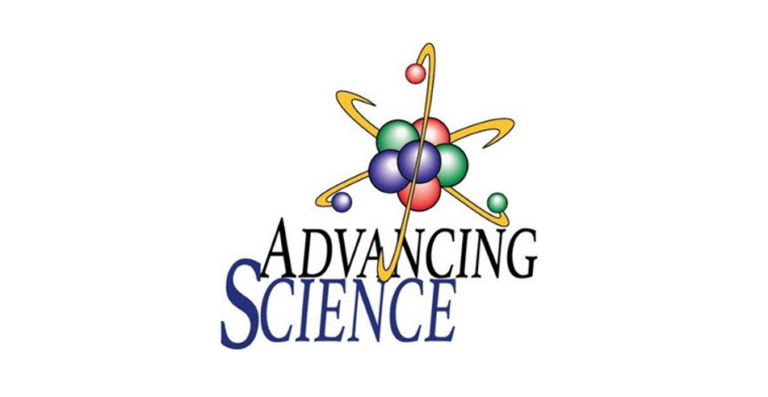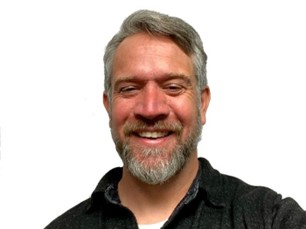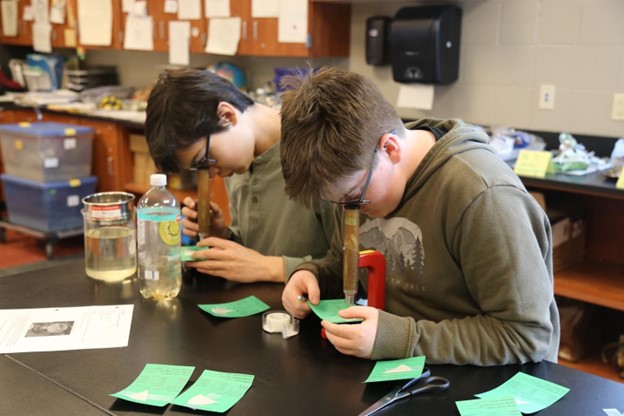
In the heart of Pennsylvania at Gettysburg College, Ryan Kerney is both an associate professor and the program director of Advancing Science, a program at the forefront of a transformative movement in science education. Advancing Science is not just an educational initiative; it is a lifeline to struggling schools, providing them with scientific equipment, workshops, and mobile science educator expertise, all at no cost. Kerney's work extends to shaping the future of science education through the development of lessons and environmental literacy plans that align with Pennsylvania’s new K-12 state science standards, in collaboration with regional school districts and supported by the National Oceanic and Atmospheric Administration (NOAA). This innovative approach leverages NOAA’s educational model (the MWEE: Meaningful Watershed Educational Experience) to blend civic engagement with environmental literacy, creating a comprehensive educational framework that prepares students to tackle the environmental challenges of today.
JL: What inspired you to branch out from your established technical background in biology to engage in educational advocacy?

Kerney: As an associate professor at Gettysburg College for many years, I have long been committed to advancing science education. This focus naturally aligns with my keen interest in education policy, particularly initiatives related to STEM fields. The intersection of these two passions has driven me to explore innovative ways to enhance science education and promote STEM literacy. My perspective on teaching and learning has also been greatly enriched by my wife's experience as an elementary school teacher, her insights have not only guided my interests but profoundly influenced my approach to classroom instruction.
JL: How does Advancing Science function, and how does it align with the educational objectives of Pennsylvania?
Kerney: For the past three years, I have served as the program director for Advancing Science, focusing predominantly on securing funding and developing hands-on initiatives. These grew out of my wife's teaching experience, she helped me recognize the significant gap in the hands-on classroom experiences that were once a staple of education. While already present, these gaps became even more apparent during the pandemic, and addressing them is a key aspect of my work with Advancing Science.
Advancing Science champions equitable access to science equipment and comprehensive three-dimensional learning experiences, offering them free of charge to K-12 schools across south-central Pennsylvania. This initiative fosters collaboration with K-12 educators, supplying engaging classroom activities aligned with Pennsylvania's new science standards. Furthermore, it bolsters educators with professional development opportunities, ensuring they are well-equipped to inspire the next generation of scientists.
Advancing Science is a key member of the 'Science in Motion' consortium, and we are presently beneficiaries of funding from NOAA’s Bay Watershed Education and Training (B-WET) program. Additionally, our initiative is bolstered by numerous corporate partnerships that are funded through an Educational Improvement Tax Credit (EITC) offered by the state. This encourages businesses to invest in our outreach work, as they receive 90% of their donation back through a state tax credit. After the credit, it only costs them a dime to give us a dollar. This synergy of support not only fuels our mission but also expands our impact, enabling us to reach a wider audience and foster a deeper engagement with science education.
JL: Advancing Science is also working to implement new K-12 educational standards. Could you elaborate on how you are actively working towards this objective?

Kerney: Advancing Science is working to help teachers implement the new Science, Technology, Engineering, and Environmental Literacy and Sustainability (STEELS) standards for K-12 education in Pennsylvania. This is our state-specific version of the Next Gen Science Standards (NGSS), and incorporates civic engagement into novel Environmental Literacy standards, neither of which are typically included by NGSS. Both STEELS and NGSS represent a transformative approach to K-12 science education, intertwining three key dimensions—Crosscutting Concepts, Science and Engineering Practices, and Disciplinary Core Ideas—to foster a deep, integrated understanding of the complete scientific process. These standards are designed to bridge various scientific domains, encouraging students to develop a cohesive view of science that connects theoretical knowledge with practical application. These new approaches to teaching science emphasize student-driven investigations. This compliments our key goal and a personal mission statement of mine; find ways to do more real science at a younger age.
JL: Could you elaborate on the implementation process for the STEELS standards through your program?
Kerney: Partnership for Adams County Environmental Literacy (PACE) is a team of educators, administrators, and community partners working to develop an environmental literacy plan using the new PA STEELS standards and supported by NOAA funding. Advancing Science Assistant Director Valerie Stone is leading a “dream team” of science teachers from Bermudian Springs, Gettysburg, and Upper Adams school districts to build collective knowledge, foster long-term partnerships between educators and community partners, and generate resources to advance environmental literacy in Adams County. These resources will be shared with other districts in our region and will provide lesson plans to engage students with locally relevant environmental science.
JL: Have you encountered any resistance or obstacles in the implementation of these novel initiatives?
Kerney: There is general teacher attrition. As teachers, especially those motivated to engage with programs like Advancing Science, aren’t compensated for their added responsibilities, they are leaving the workforce and cutting out our direct line to students.
Attracting STEM students to teaching positions is a considerable hurdle. For the effective promotion of STEM subjects in our schools, the presence of teachers with a solid STEM foundation is essential to stimulate student interest and engagement. Yet, the allure of more lucrative careers in the private sector often overshadows the teaching profession, resulting in a significant drain of potential educators to alternative career paths. To counter this, we are establishing a STEM educator workforce development program with Gettysburg College. This initiative is tailored to assist STEM undergraduates in their transition to teaching roles, offering them the essential funding and resources they need. Our aim is to bridge this gap, ensuring that the incentives for entering the teaching profession align more closely with the transformative impact educators can have in the STEM fields.
If you want to learn more, or think you might want to get involved, you can visit our Advancing Science page www.advancingscience.org.
Dive into the topic of local STEM education through other education article features.
Are you involved with an organization or effort that you think might be of interest to the ESAL community? Or have heard about an organization or initiative that you’d like to learn more about? Let us know here, and we may feature it in a future post.